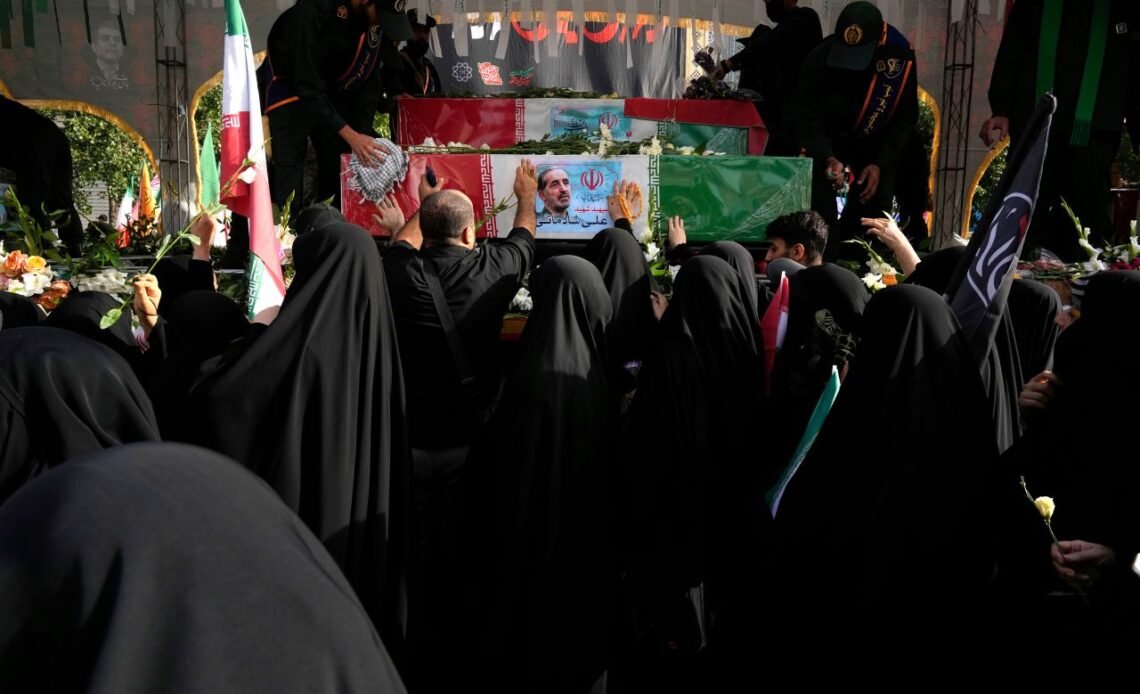The Middle East is once again at the center of global attention as tensions between Israel and Iran escalate dramatically. In the wake of recent Israeli Airstrikes in Iran, thousands of mourners have flooded the streets across Iranian cities to pay tribute to high-ranking commanders and prominent scientists killed in the attacks. The situation has not only sparked national grief but also raised fears of a broader conflict in the region.
Understanding the Israeli Airstrikes in Iran
The latest series of Israeli Airstrikes in Iran targeted multiple locations believed to be connected to Iran’s military infrastructure and scientific programs. According to reports from Iranian state media, several senior military officials and top scientists were among those killed in the strikes. The attacks come amid growing hostility between the two nations, with Israel citing concerns over Iran’s nuclear ambitions and military influence in the region.
Timeline of the Recent Strikes
The airstrikes reportedly began in the early hours of the morning, with explosions heard near military compounds and research facilities. Iran has confirmed significant casualties, including influential figures within its Revolutionary Guard and scientific community. While Israel has yet to comment on the specifics officially, sources suggest these strikes are part of a broader strategy to curb Iran’s technological and defense advancements.
Strategic Motives Behind the Airstrikes
For years, Israel has considered Iran’s military development a direct threat to its national security. The Israeli Airstrikes in Iran are widely seen as a calculated effort to weaken Iran’s defense capabilities and disrupt what Israel believes are covert nuclear activities. This aggressive stance reflects the long-standing tensions rooted in ideological, political, and security disputes between the two nations.
Public Reaction Across Iran
The fallout from the strikes has been immediate and emotional. In Tehran, Mashhad, Qom, and other major cities, vast crowds have taken to the streets to mourn the fallen commanders and scientists. Funerals and processions have become a symbol of national unity and defiance, with citizens chanting slogans and demanding justice.
Mourning Ceremonies and National Solidarity
Footage from the ground shows thousands participating in solemn ceremonies, waving Iranian flags and portraits of those killed. Religious leaders have called for calm but also emphasized the sacrifices made by those targeted in the Israeli Airstrikes in Iran. These public displays of grief reflect deep-rooted sentiments of resistance and pride within Iranian society.
Official Government Response
Iranian officials have condemned the attacks as blatant acts of aggression. The Supreme Leader and other high-ranking authorities have vowed a “decisive response,” raising concerns about possible retaliatory actions. Tehran has also appealed to international bodies, accusing Israel of violating Iran’s sovereignty and destabilizing the region.
Global Reactions to the Israeli Airstrikes in Iran
The international community has responded with a mixture of caution and concern. The United Nations has called for restraint, while major world powers, including the United States and the European Union, have urged both sides to avoid further escalation of the conflict.
Fears of Regional Destabilization
Middle East analysts warn that the Israeli Airstrikes in Iran could ignite a chain reaction of violence. With Iran hinting at retaliation and Israel maintaining its hardline stance, neighboring countries worry about being drawn into a wider confrontation. Many fear that proxy groups aligned with Iran, such as Hezbollah, could also become involved, further fueling instability.
The Future of Iran-Israel Relations
The current events have brought the already-strained Iran-Israel relationship to a critical tipping point. Military experts suggest Iran may retaliate through cyberattacks, missile strikes, or covert operations, while diplomatic channels remain fraught with challenges.
Prospects for Retaliation and Diplomacy
While Iran has pledged a response, the form and timing remain uncertain. Some analysts believe backchannel negotiations may still prevent full-scale war, but the cycle of strikes and counterstrikes has made peace prospects increasingly fragile.
Conclusion
The Israeli Airstrikes in Iran have intensified an already volatile situation, leaving behind loss, anger, and uncertainty. As Iran buries its fallen commanders and scientists, the world watches closely, hoping diplomacy prevails over violence. But for now, the grief in Iran’s streets is matched only by the looming threat of further escalation in one of the world’s most dangerous geopolitical rivalries.
Stay Informed with Trending Stories – Join Our Newsletter Today!


